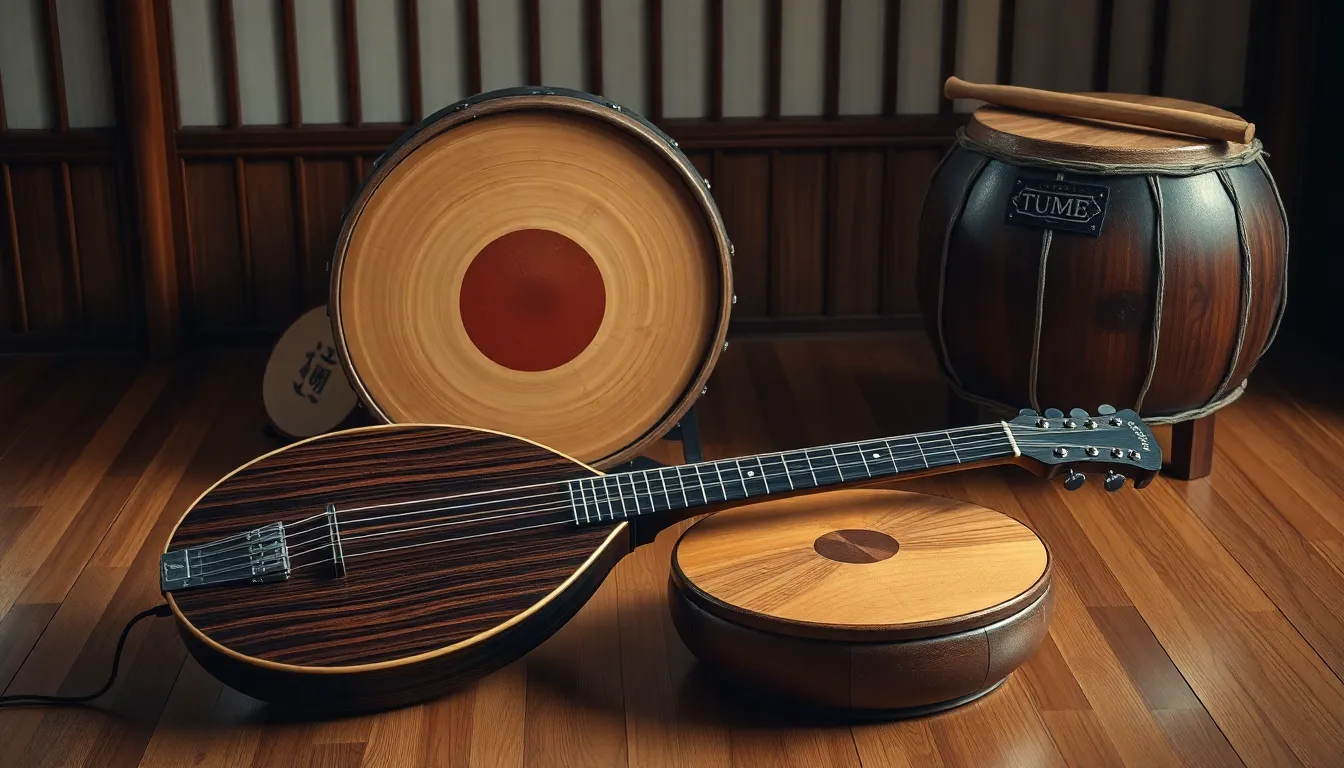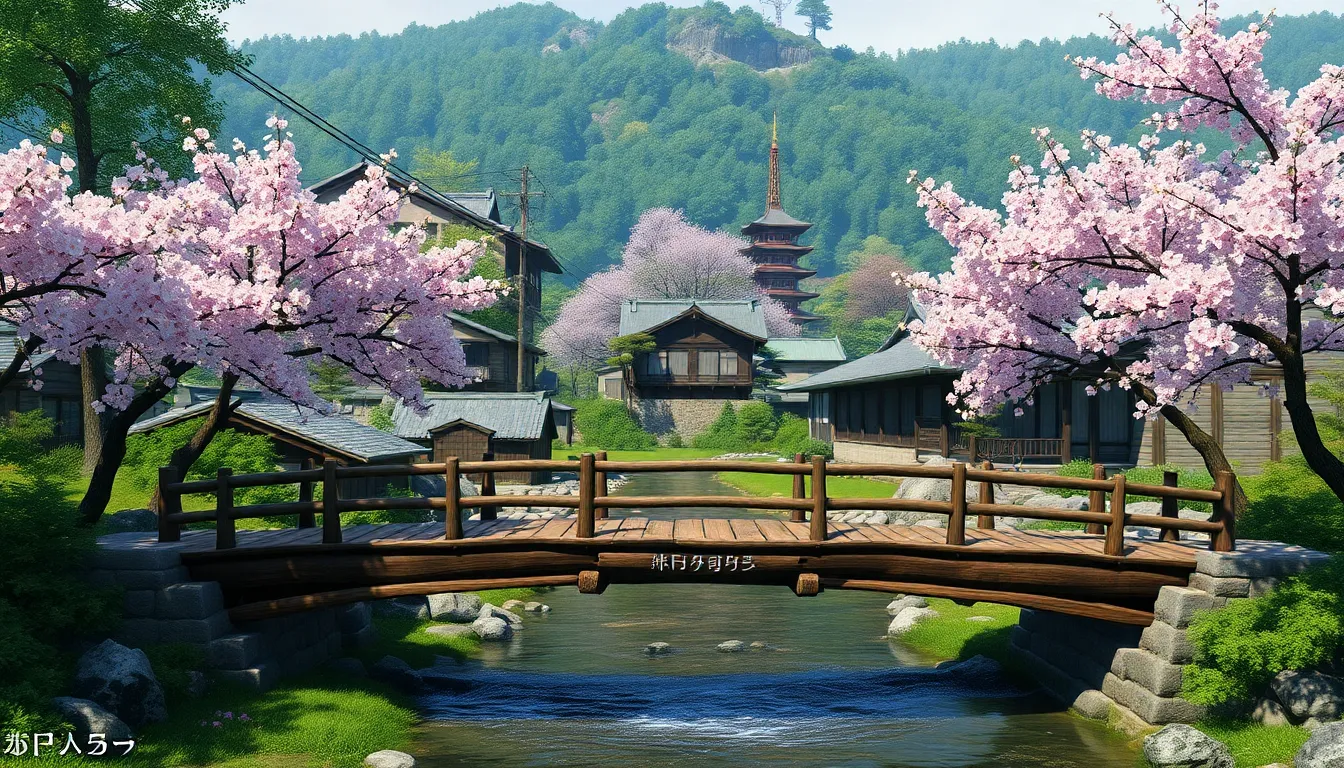In a world where video game soundtracks often play second fiddle to flashy graphics and gripping narratives, Ghost of Tsushima struts in like a samurai with a killer playlist. This game isn’t just about slicing through Mongol hordes; it’s about immersing players in a rich auditory experience that elevates every moment. From the gentle strum of a shamisen to the thunderous clash of swords, the soundtrack weaves a tale as compelling as Jin Sakai’s journey.
Imagine galloping across the breathtaking landscapes of Tsushima while a haunting melody tugs at your heartstrings. The music captures the essence of feudal Japan, making you feel like a true warrior. Whether you’re battling foes or simply enjoying the serene beauty of the island, the soundtrack transforms the experience into something truly unforgettable. So grab your controller and get ready to dive into a symphonic adventure that’ll leave you humming long after the game is over.
Table of Contents
ToggleOverview of Ghost of Tsushima Soundtrack
The soundtrack of Ghost of Tsushima plays a crucial role in shaping the game’s atmosphere and emotional depth. Composed by Ilan Eshkeri and Shigeru Umebayashi, the music draws inspiration from traditional Japanese sounds, cleverly blending orchestral arrangements with authentic instruments. Players experience a rich auditory landscape that heightens immersion during gameplay.
The soundtrack features a diverse range of tracks, each designed to evoke specific emotions while reflecting the game’s setting. Instrumentation includes strings, woodwinds, and percussions, creating varying moods that accompany peaceful moments and intense battles. For example, soft shamisen melodies fill serene landscapes, while powerful taiko drumming underscores high-stakes conflicts.
Themes resonate throughout the game, reinforcing character development and narrative progression. Key motifs, like Jin’s theme, evolve alongside his journey, allowing players to connect more deeply with his struggles and triumphs. Sound design intricately integrates music with environmental elements, such as rustling leaves and distant bird calls, enriching the overall experience.
In addition to enhancing gameplay, the soundtrack stands alone as a noteworthy achievement. It received critical acclaim, earning nominations for multiple awards, including the BAFTA Games Award for Best Music. The musical compositions encapsulate the essence of feudal Japan, drawing players back to breathtaking landscapes long after the controller is set down.
Overall, the Ghost of Tsushima soundtrack combines artistic vision with technical excellence, elevating the game’s narrative and emotional impact. Players encounter a seamlessly woven auditory experience that transforms gaming into a truly unforgettable journey.
Composers and Musical Contributors

The soundtrack of Ghost of Tsushima derives its depth and richness from various talented composers and contributors. This collaboration significantly enhances the game’s immersive experience.
Main Composer: Ilan Eshkeri
Ilan Eshkeri serves as the main composer for the soundtrack, combining traditional Japanese music with orchestral styles. His work captures the emotional nuances of the game, allowing players to feel connected to Jin’s journey. Eshkeri incorporates the shamisen and taiko drums, creating a powerful auditory experience that reflects the game’s themes. His approach to composition highlights the beauty of feudal Japan, making each scene resonate with players in unique ways.
Additional Contributors
Shigeru Umebayashi also plays a vital role, contributing to the soundtrack’s authenticity and emotional depth. Known for his work in film, Umebayashi adds a distinct flair that complements Eshkeri’s compositions. Other musicians assist in crafting the soundtrack, bringing their expertise in traditional instruments to the project. Together, these contributors create a harmonious blend of sound that enhances the narrative and emotional impact throughout Ghost of Tsushima.
Musical Themes and Styles
The soundtrack of Ghost of Tsushima features a rich tapestry of musical themes and styles that enhance the immersive experience. Players encounter a blend of traditional sounds and modern techniques throughout their journey.
Traditional Japanese Influences
Traditional Japanese influences dominate the soundtrack, showcasing authentic instruments like the shamisen and shakuhachi. By incorporating these elements, composers Ilan Eshkeri and Shigeru Umebayashi capture the essence of feudal Japan. Melodies often evoke a sense of tranquility, reflecting moments of introspection in the game. Taiko drums add depth and intensity, particularly during battle sequences. Each track serves a purpose, weaving cultural elements with storytelling. The result is an emotional connection that resonates with players, grounding them in the game’s historical context.
Modern Cinematic Techniques
Modern cinematic techniques further elevate the auditory experience in Ghost of Tsushima. Eshkeri employs orchestral arrangements that blend seamlessly with traditional motifs. Additionally, the use of dynamic scoring responds to in-game actions, delivering a tailored soundtrack that shifts based on player choices. Emotional crescendos often coincide with key moments, enhancing storytelling. Mixing these contemporary elements with classical sounds creates a unique auditory landscape. Players feel as if they’re part of a film, allowing for deeper engagement as they traverse Tsushima’s breathtaking environments.
Impact on Gameplay Experience
The soundtrack of Ghost of Tsushima significantly enhances the overall gaming experience, deeply engaging players. Music intertwines with gameplay, transforming moments into memorable encounters.
Enhancing Emotional Resonance
Emotional resonance thrives through carefully composed music. Subtle shamisen melodies evoke feelings of peace during exploration. Intense taiko rhythms amplify the stakes during combat. Jin’s theme evolves throughout the game, capturing his character’s journey and development. Players connect more deeply with the story as the soundtrack reflects profound emotions tied to key events. Increased emotional investment leads to a richer narrative experience, reinforcing players’ engagement with Jin’s quest for honor.
Creating Atmosphere and Immersion
Atmosphere and immersion soar thanks to the unique soundtrack blend. Traditional Japanese instruments like the shakuhachi provide authenticity, allowing players to feel like they are roaming ancient Japan. The seamless integration of orchestral arrangements amplifies the emotional weight of scenes. During serene moments, players hear soft instrumentals that create tranquility. Conversely, action sequences ignite with powerful drums, heightening the adrenaline of battles. Overall, this musical richness pulls players into Tsushima’s vast world, fostering a sense of belonging and participation.
Reception and Critique
The soundtrack of Ghost of Tsushima garnered significant attention from both critics and players alike. Each piece contributes to a truly immersive gaming experience.
Critical Acclaim
Critics widely praised the music for its emotional depth and cultural authenticity. Nominations for the BAFTA Games Award for Best Music highlight its impact on the industry. Various publications, including IGN and GameSpot, lauded the unique combination of traditional Japanese sounds and orchestral elements. Many pointed out how this musical richness enhances the narrative arc of the game. Composition by Ilan Eshkeri and Shigeru Umebayashi stands out, with clever integration of themes that reflect key character developments. Reviewers noted that the thematic evolution of Jin’s music aligns perfectly with his journey, adding layers of meaning to the game’s storytelling. The ultimate result is a soundtrack that resonates profoundly with players, transforming their gameplay experience into something memorable.
Audience Response
Players responded enthusiastically to the soundtrack’s ability to evoke powerful emotions. The shared excitement on forums and social media platforms showcases its influence. Many players highlighted specific tracks that resonated deeply, noting how they enhanced pivotal moments throughout the game. Users frequently cited the emotional connection the music fosters, especially during intense combat and serene exploration. The incorporation of traditional instruments like the shamisen and taiko drums was especially appreciated for adding authenticity. Reviews from platforms like Metacritic reveal that the soundtrack has become a standout feature of the gaming experience. Overall, audiences celebrated the music as a vital component of Ghost of Tsushima, accentuating its cultural and emotional significance.
The soundtrack of Ghost of Tsushima stands as a remarkable achievement in video game music. Its blend of traditional Japanese instruments and orchestral elements creates an immersive experience that resonates deeply with players. The emotional depth and cultural authenticity elevate the narrative, allowing players to forge a strong connection with Jin’s journey.
Critics and players alike have recognized the soundtrack’s impact, celebrating its ability to enhance gameplay and evoke powerful emotions. This musical masterpiece not only enriches the gaming experience but also solidifies Ghost of Tsushima’s place as a significant work of art in the gaming industry. The soundtrack will continue to be remembered long after the final credits roll, leaving an indelible mark on those who embark on this unforgettable journey.




